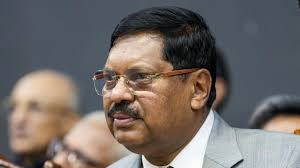Supreme Court judgement against ‘bulldozer justice’ upheld socio-economic rights: CJI B R Gavai

The Supreme Court bulldozer justice verdict has reaffirmed India’s commitment to socio-economic rights and constitutional justice. Chief Justice of India (CJI) B. R. Gavai, speaking at a legal conference in Milan, said the court’s ruling sends a strong message: the rule of law must prevail over arbitrary state action.
He added, “A home is not just a physical structure—it reflects dignity, stability, and human aspiration.”
Image alt text: Supreme Court bulldozer justice verdict upholds socio-economic rights
🧱 Demolition Without Due Process Is Unconstitutional
The 2024 verdict came after authorities in several Indian states demolished homes belonging to people accused of crimes—often without court orders. The court ruled that such demolitions violated Article 21 of the Constitution, which guarantees the right to life and personal liberty.
Key safeguards in the ruling:
- Authorities must issue a show-cause notice before any demolition.
- A 15-day window must be given to respond or seek legal remedy.
- Demolition orders should be uploaded to civic authority websites.
- Officials violating these rules may face criminal contempt and must compensate the victims.
These steps aim to prevent misuse of executive power.
➡️ Read the full Supreme Court judgment on bulldozer justice
🧑⚖️ Executive Power Must Follow the Law
CJI Gavai criticized the trend of using bulldozers as symbols of punishment. He stated clearly, “The executive cannot act as judge, jury, and executioner.” Such practices undermine judicial independence and blur the separation of powers.
Instead of respecting legal procedure, some officials bypassed courts to carry out public demolitions—actions that sparked fear, especially among marginalized communities.
This verdict sends a signal to all levels of government: legal processes must not be short-circuited for political optics.
🏠 Shelter Is a Socio-Economic Right, Not a Privilege
The Supreme Court connected the right to shelter to broader socio-economic justice. When homes are destroyed without notice, people lose more than property—they lose access to education, healthcare, and livelihood.
CJI Gavai stated, “The Constitution protects every citizen, not just the privileged. Shelter is a socio-economic right that enables people to live with dignity.”
This aligns with India’s long-standing emphasis on social justice, including previous judgments such as Olga Tellis v. Bombay Municipal Corporation.
➡️ Learn more about socio-economic rights in Indian law
🔍 Legal Experts Applaud the Judgment
Many legal scholars hailed the ruling as a milestone. Senior advocate Sanjay Hegde said, “The court has struck a balance between urban development and human rights.”
Housing activists also welcomed the verdict. They emphasized how summary demolitions often target the poor and reinforce structural inequality.
🌐 Internal and External Resources
- 🏠 Related Reading: Why Right to Shelter Matters in a Welfare State
- 📚 Reference: Times of India report on CJI Gavai’s speech in Milan
- ⚖️ Legal Resource: Supreme Court of India judgments portal
📝 Conclusion
The Supreme Court bulldozer justice verdict ensures that enforcement agencies cannot override the law. CJI Gavai’s speech reinforces that shelter is not a luxury but a right that underpins socio-economic stability.
This landmark decision shows that the judiciary will stand firm to protect civil liberties and prevent executive overreach. At a time when quick justice often ignores legal norms, the court has reminded the nation: due process is not optional—it is essential.






